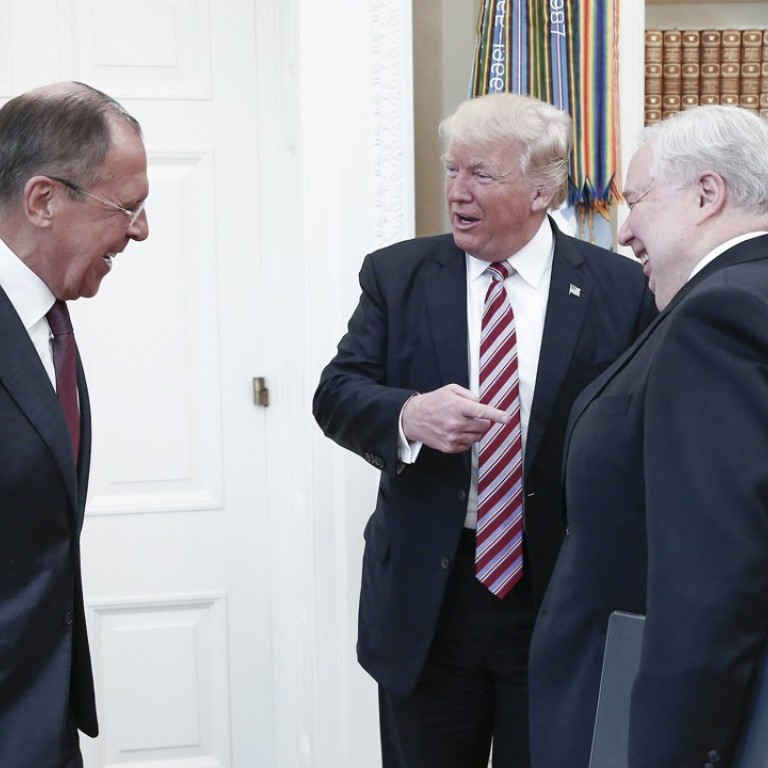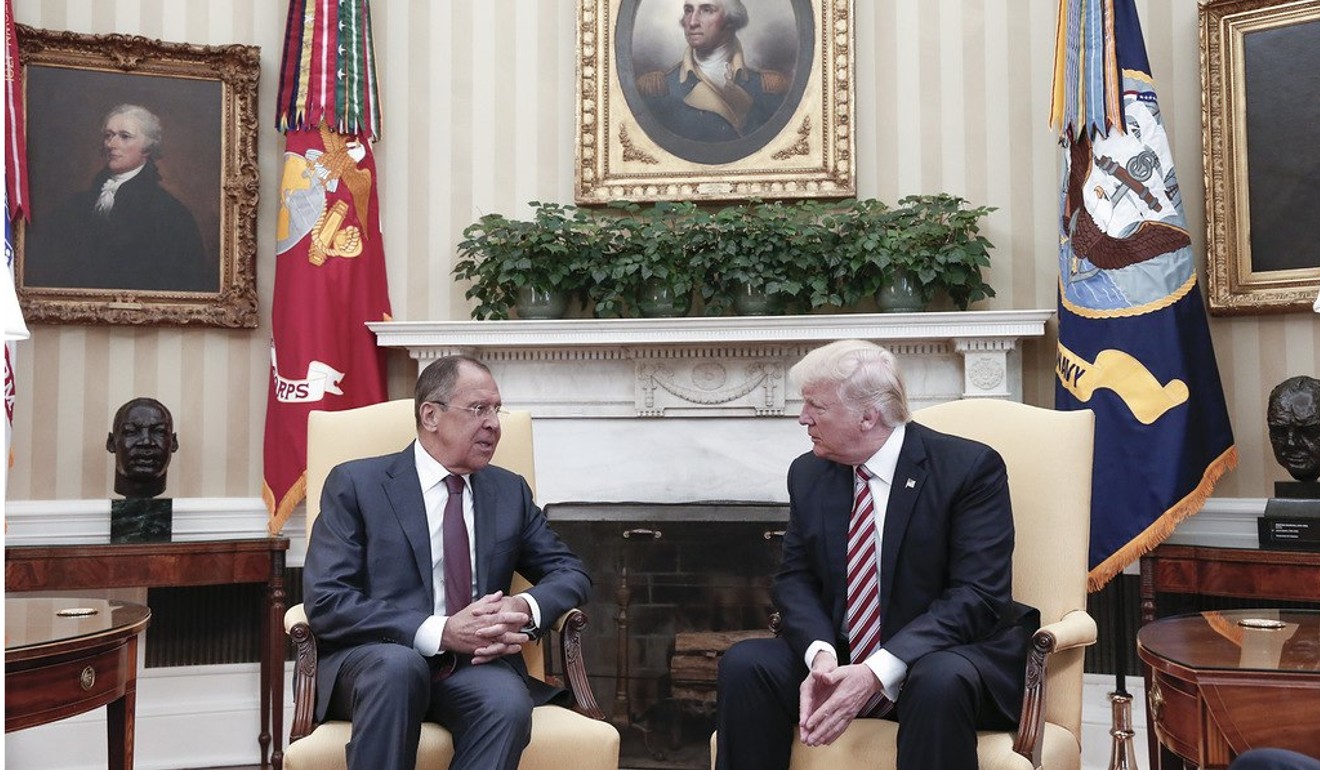
Trump insists he has ‘absolute right’ to share intel with Russia
In his tweet Trump wrote that he was motivated by ‘humanitarian reasons, plus I want Russia to greatly step up their fight against ISIS & terrorism’
US President Donald Trump on Tuesday insisted he had the right to share “facts” with Russia, saying he acted to help Moscow in its “fight against ISIS and terrorism”.
His Twitter message came one day after news broke that he allegedly divulged classified information to Russia’s foreign minister and ambassador to Washington during their visit last week to the Oval Office.
“As President I wanted to share with Russia (at an openly scheduled W.H. meeting) which I have the absolute right to do, facts pertaining to terrorism and airline flight safety,” he wrote in an early morning tweet.
In his tweet Trump wrote that he was motivated by “humanitarian reasons, plus I want Russia to greatly step up their fight against ISIS & terrorism”.
For months, US allies have anxiously wondered if President Donald Trump could be trusted with some of the world’s most sensitive national security secrets.
Now, just a few days before Trump’s debut on the international stage, he’s giving allies new reasons to worry.
The Washington Post reported on Monday that Trump revealed highly classified information about an Islamic State plot to Russian Foreign Minister Sergei Lavrov and Russian Ambassador to the US Sergey Kislyak during an Oval Office meeting last week. The information had been obtained by a US partner and shared with Washington, the Post reported.
“This is what Europeans have been worrying about,” one Western official said.
White House officials denied the story in several statements, including a 45-second on-camera statement delivered by Trump’s national security adviser. But officials refused to answer specific questions, including what precisely the report had gotten wrong, ensuring it would dominate a week that White House officials hoped would be quiet in advance of the president’s first foreign trip.
At one point National Security Adviser H.R. McMaster, who would later deliver the televised denial, stumbled into the crowd of journalists as he walked through the West Wing.
“This is the last place in the world I wanted to be,” he said, nervously, as he was pushed for information. “I’m leaving. I’m leaving.”
After high-stakes visits to Saudi Arabia, Israel and the Vatican, he’ll meet some of Washington’s strongest European partners at a Nato summit in Brussels and the G7 meeting in Sicily. Some of the leaders he’ll meet come from countries the US has intelligence-sharing agreements with.

Trump has a contentious relationship with American spy agencies. He’s questioned the competence of intelligence officials, challenged their assessment that Russia meddled in last year’s election to help him win, and accused them of leaking information about him and his associates. The leaks have only continued to flow.
The Post, citing current and former US officials, said Trump shared details with top Russian officials about an Islamic State terror threat related to the use of laptop computers on aircraft. White House officials disputed the report, saying Trump did not disclose intelligence sources or methods with the Russians, though they did not deny that classified information was disclosed in the May 10 meeting.
The White House has looked to the trip as a moment to draw Trump out of Washington’s hyper-partisan hothouse and put him in a more statesman-like setting. He’s expected to be warmly received by Arab allies in Saudi Arabia, who welcomed his decision to launch missiles against a Syrian air base following a chemical weapons attack, and in Israel, where Prime Minister Benjamin Netanyahu views Trump as more favourable to his interests than former president Barack Obama.
But some of the European partners Trump will meet later in his trip have been more sceptical about his policies, including a controversial travel and immigration ban that’s been blocked by US courts. Western allies, including Britain and Germany, have also been wary of Trump’s warmness toward Russian President Vladimir Putin, who was kicked out of the summit of leading economic powers after Moscow’s annexation of territory from Ukraine.
The White House’s botched handling of Trump’s firing last week of FBI Director James Comey, who was overseeing the bureau’s Russia probe, and the president’s own volatile statements about his actions are also likely to raise questions among allies about the US leader’s standing.
Anthony Cordesman, a national security expert at the Centre for Strategic and International Studies, said allies will be trying to size up Trump’s “actual political strength relative to the divisions with Congress, the problems within his own party.”
He asked: “Can he move forward with his own agenda? That will certainly be a question as he visits any country overseas.”
Additional reporting by The Washington Post, Agence France-Presse

